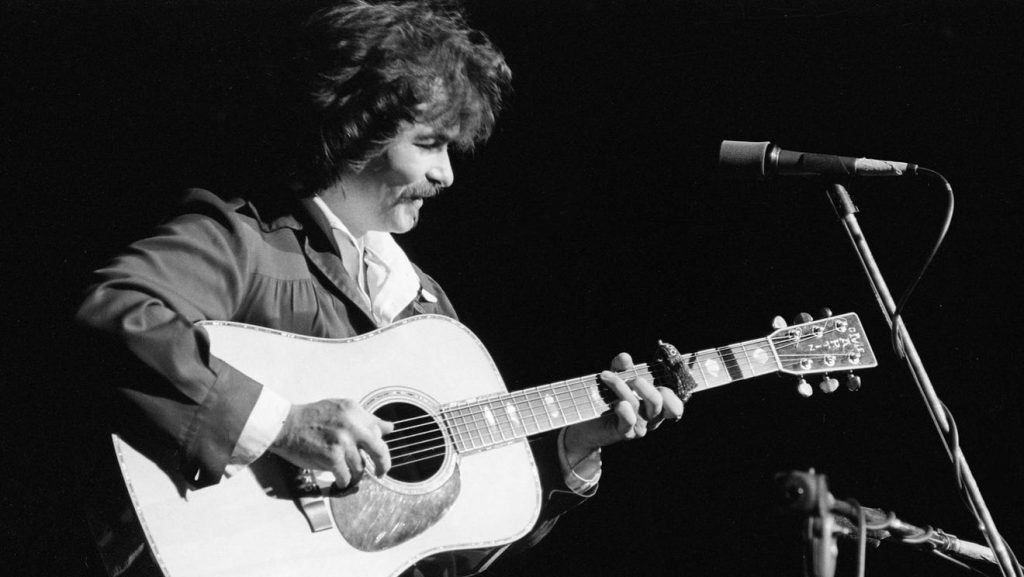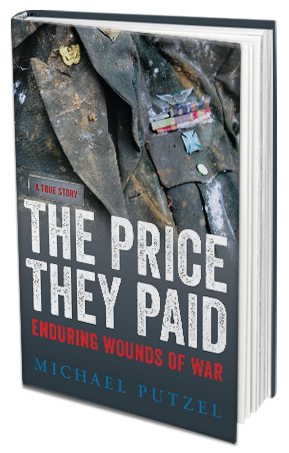Blog
John Prine saw PTSD coming before most of us
Posted by Michael Putzel • April 14, 2020
When singer-songwriter John Prine died of complications from Covid-19 this month, I was moved to go back and listen to some of his music I hadn’t heard in years. His raspy, country voice and clever—sometimes searing—stories and his frequently humorous lyrics earned him a phalanx of devoted followers who stuck with him long after the decline of the folk revival he helped fuel.

I can’t remember when I learned of him, but it was certainly after the release of his first album in 1971. I was in Vietnam at that time, covering the war, and not listening to much new music. It was probably two or three years later that I was introduced to his work. But it wasn’t until last week, when his death was widely reported and his songs replayed over and over, that I realized one of his first and best-known songs was written at the same time I was discovering and reporting the explosion of drug use and collapse of morale among American troops in Vietnam. Prine saw PTSD coming before most of us.
The song was “Sam Stone.” It told the story of a tortured, drug addicted soldier like many of those coming home from Vietnam. Prine himself was drafted into the Army in 1966 during the buildup of U.S. ground forces in Vietnam, but he was trained as a mechanic and ordered to Stuttgart, West Germany, to repair military trucks. When he got out of the Army, he took a job as a mailman in Chicago and played his music on the side until Chicago Sun-Times critic Roger Ebert heard him play and raved about his talent in a column. It launched a 50-year career.
“Sam Stone” was written while Prine was delivering mail and more than 500 Americans were being killed every month in Vietnam. As portrayed in the song, the soldier Sam Stone was wounded by a piece of shrapnel in the knee and given morphine for the pain. The war had shattered his nerves, and he returned home to his wife and family “with a Purple Heart and a monkey on his back.”
The song recounts Sam’s downward spiral, stealing to support his habit until a fatal overdose ends his life.
“Sam Stone” was released on Prine’s first album in August 1971, nearly a decade before post-traumatic stress was recognized by the American Psychiatric Association in its manual of mental disorders.
11 thoughts on “John Prine saw PTSD coming before most of us”
Comments are closed.







Great blog, Mike, and so wonderful to add John Prine’s “Sam Stone.” That capped off wonderfully a story of horror that played out for so many.
Thank you, John.
That was tough losing Prine but then God will welcome him into heaven with a big hand shake. John and Brother J can share some stories though Prine’s might be exagerated a bit. PTSD is horrific and Prine told us about it. “Take Another Puff”
https://www.youtube.com/watch?v=Ynf4m1jSkxM
Thanks, Mike.
I think he was a natural treasure.
“Hello In There” is my favorite.
Maybe those of you of a certain age favor “Hello in There,” while I’m just a kid, still stuck in the ’70s. 🙂 Sam Stone sticks in my head for hours.
Hi Mike, I have been a huge John Prine fan for years and am very sorry that we lost him to this virus. The great thing about musicians is that they stay with us as long as we keep listening to them. I am a fan of your writing as well as your appreciation for good music. Peace!
Thank you, Richard. I don’t think we ever spoke of him, but I am not at all surprised you liked him, too, even if he doesn’t sing shanties.
I’ve been a huge John Prine fan for a long time. One of the best concerts Marilyn and I ever attended was just him and Nanci Griffith playing and singing each other’s songs. I love “Crazy Bone,” the only song about Nebraska I can think off — not to mention “Hello in There” and “Spanish Pipedream,” which has some of the best lyrics ever. He had an amazing insight about the human condition.
I agree on all counts. Gotta go find Crazy Bone. I forgot about that one. Stay safe.
A wise man once said that artists “take us out of our selves and then give us back to our selves more fully human.” That magic was there in John Prine’s Music. For that I will Be forever grateful. We may miss the man, but his art is ever with us.
Thanks, Jim. Well said.